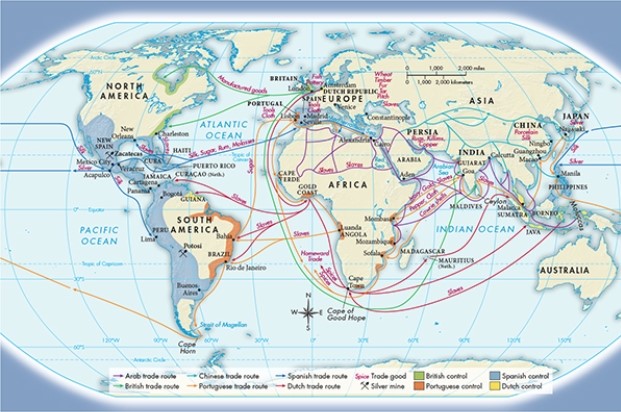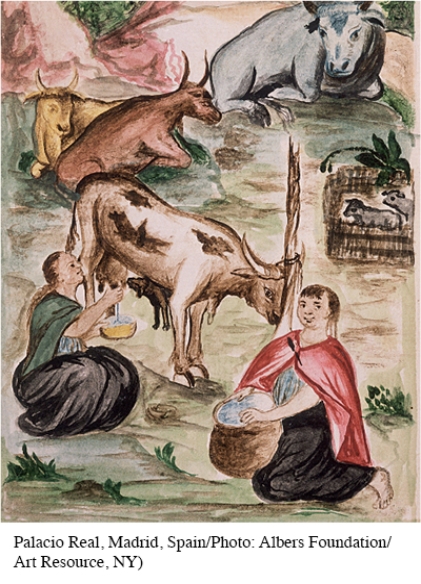Exam 16: The Acceleration of Global Contact, 1450-1600
Exam 1: The Earliest Human Societies, to 2500 Bce82 Questions
Exam 2: Complex Societies in Southwest Asia and the Nile Valley, 3800-500 Bce75 Questions
Exam 3: The Foundation of Indian Society, to 300 Ce81 Questions
Exam 4: Chinas Classical Age, to 221 Bce80 Questions
Exam 5: The Greek Experience, 3500-30 Bce75 Questions
Exam 6: The World of Rome, Ca 1000 Bce-400 Ce75 Questions
Exam 7: East Asia and the Spread of Buddhism, 221 Bce-845 Ce77 Questions
Exam 8: Continuity and Change in Europe and Western Asia, 250-85078 Questions
Exam 9: The Islamic World, 600-140065 Questions
Exam 10: African Societies and Kingdoms, 1000 Bce-1500 Ce77 Questions
Exam 11: The Americas, 3200 Bce-1500 Ce77 Questions
Exam 12: Cultural Exchange in Central and Southern Asia, 300-140076 Questions
Exam 13: States and Cultures in East Asia, 800-140079 Questions
Exam 14: Europe and Western Asia in the Middle Ages, 800-145079 Questions
Exam 15: Europe in the Renaissance and Reformation, 1350-160079 Questions
Exam 16: The Acceleration of Global Contact, 1450-160078 Questions
Exam 17: The Islamic World Powers, 1300-180077 Questions
Exam 18: European Power and Expansion, 1500-175078 Questions
Exam 19: New Worldviews and Ways of Life, 1540-179081 Questions
Exam 20: Africa and the World, 1400-180076 Questions
Exam 21: Continuity and Change in East Asia, 1400-180073 Questions
Exam 22: Revolutions in the Atlantic World, 1775-182581 Questions
Exam 23: The Revolution in Energy and Industry, 1760-185079 Questions
Exam 24: Ideologies of Change in Europe, 1815-191482 Questions
Exam 25: Africa, the Ottoman Empire, and the New Imperialism, 1800-191479 Questions
Exam 26: Asia and the Pacific in the Era of Imperialism, 1800-191479 Questions
Exam 27: The Americas in the Age of Liberalism, 1810-191776 Questions
Exam 28: World War and Revolution, 1914-192981 Questions
Exam 29: Nationalism in Asia, 1914-193976 Questions
Exam 30: The Great Depression and World War Ii, 1929-194580 Questions
Exam 31: Review82 Questions
Exam 32: Liberalization, 1968-2000s75 Questions
Exam 33: The Contemporary World in Historical Perspective73 Questions
Exam 34: 20th Century Global Issues and Developments20 Questions
Select questions type
What factors facilitated the expansion of European society from 1450 to 1650? What was the motivation, both for the individual European explorers and the states that supported them?
(Essay)
4.8/5  (34)
(34)
According to Map 16.3, "Seaborne Trading Empires in the Sixteenth and Seventeenth Centuries," inspection of Spanish and Portuguese trade routes reveals which of the following? 
(Multiple Choice)
4.8/5  (37)
(37)
Why did women in Southeast Asia tend to have more economic power than women in India, China, and Europe?
(Multiple Choice)
4.9/5  (34)
(34)
What was the major trade commodity of the trans-Saharan trade route?
(Multiple Choice)
4.7/5  (37)
(37)
Which of the following statements best describes slavery and race in the seventeenth century?
(Multiple Choice)
4.9/5  (43)
(43)
What was the most important food item introduced from the New World to Europe?
(Multiple Choice)
4.8/5  (40)
(40)
What happened when the Inca leader Atahualpa first met the Spanish?
(Multiple Choice)
4.9/5  (42)
(42)
After his initial voyage to the Americas in 1492, how did Columbus describe the natives he met?
(Multiple Choice)
4.9/5  (40)
(40)
Explain how the Spanish organized and ruled their new colonial holdings in the Americas.
(Essay)
4.8/5  (24)
(24)
What evidence is there in this illustration of European influence on the Inca? 
(Multiple Choice)
4.8/5  (38)
(38)
The assembly called by Charles V in Valladolid, Spain, in 1550 debated what issue?
(Multiple Choice)
4.8/5  (34)
(34)
Showing 61 - 78 of 78
Filters
- Essay(0)
- Multiple Choice(0)
- Short Answer(0)
- True False(0)
- Matching(0)